Open on Evenings & Holidays! Extended And Flexible Hours!
* DNA Testing for Immigration
* Paternity Testing
* Deceased Paternity
* Forensic Testing & Much More!
Open on Evenings & Holidays! Extended And Flexible Hours!
* DNA Testing for Immigration
* Paternity Testing
* Deceased Paternity
* Forensic Testing & Much More!
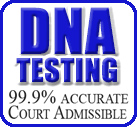
AB DNA Testing Services
Phone: 718-701-0292
We offer New York’s BEST AND MOST AFFORDABLE DNA TESTING with a full range of services to verify family relationships.
We specialize in the following types of DNA tests:
• Paternity • Maternity • Grand-parenting • Sibling Relationship • Biological Relationship Studies • Twin Studies • Deceased Paternity • Forensic Testing • Child Identity Testing • Family Tree and Genealogy Testing
* EVEN LOWER PRICE THAN HOME DNA KITS.
* NO HIDDEN COSTS – Collection kits, photography, and fingerprinting all included.
* 99.9% (OR GREATER) ACCURACY.
* FINAL RESULTS ARE PRESENTED IN A NOTARIZED DOCUMENT IN A CLEAR AND CONCISE FORM.
* ALL RESULTS ARE COURT ADMISSIBLE.
* OVER 15 YEARS EXPERIENCE.
* NO REFERRALS NECESSARY!
* FAST AND PAINLESS SAMPLE COLLECTIONS, USING BUCCAL (Mouth) SWABS.
* SPANISH, PORTUGUESE, FRENCH AND CREOLE SPOKEN.
* PLEASE SEE TRANSLATIONS OF OUR SERVICES IN: SPANISH, BENGALI, URDU, CHINESE AND NEPALESE!
Located In Woodside Queens, easily reachable from all boroughs (Queens, Manhattan, Brooklyn, Bronx and Staten Island), Westchester, Nassau and Suffolk.
We can also schedule DNA tests at our network of collection sites throughout New York city.
Call us. We have found that in many cases, our personalized service can overturn your denial. We will call the passport office or immigration dept. for you and plead your case over phone verbally.
90% of time they will revoke your denial, as long as you get the required information to them quickly.
AB DNA TESTING SERVICES
AB DNA Testing Services © |
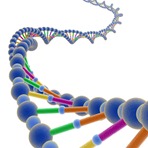 |
718-701-0292 We are open on evenings & holidays! |
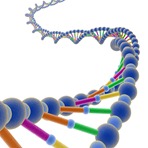 |
Legal Paternity Test: $349
NYS compliant testing only. NO HIDDEN COSTS OR EXTRA FEES.
We do not provide prenatal DNA testing in-house. If you need prenatal testing, we can refer you to a provider we’ve worked with previously:
Prenatal DNA Testing NYC.
AB DNA Testing Services offers a broad range of DNA testing options using certified, accredited laboratories and verified collection procedures.
This blog explores what to expect during a dna test appointment and provides insights into how it works and its significance. DNA testing has become an indispensable tool in resolving questions related to relationships, ancestry, and legal matters. From confirming paternity to supporting immigration cases, DNA testing offers accurate and reliable results.
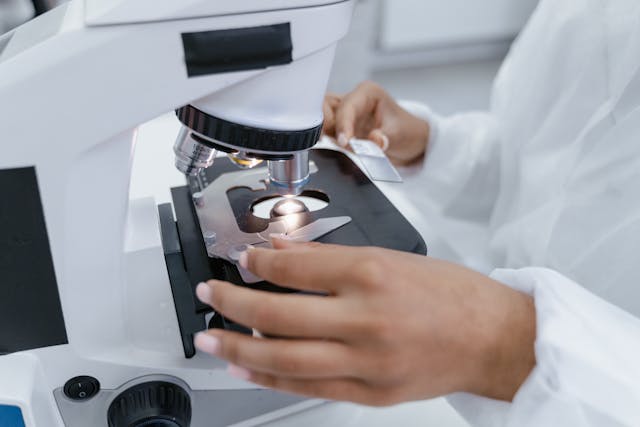
DNA testing has applications ranging from personal identification to legal cases. It helps confirm biological relationships, supports legal disputes, and uncovers family history. These tests are conducted with high accuracy, ensuring you get the answers you need with confidence.
Preventive measures can ensure the security of your genetic data and its ethical use. Choose certified testing facilities with stringent data protection policies. Verify how your sample and results will be handled to ensure confidentiality.
Before choosing a DNA testing provider, evaluate the laboratory’s certifications, the range of services offered, and their expertise. Consider whether the provider can accommodate your specific needs, such as legal, medical, or genealogical testing.
Need reliable DNA testing services? Contact AB DNA Testing Services © today to schedule your appointment.
AB DNA Testing Services ©
Phone: 718-701-0292
Before proceeding to how DNA testing works, it is better to learn what DNA is. Our DNA carries our complete genetic code. It determines attributes of a person such his eye color and other aspects of his personality. It is noteworthy here that every cell of our body from the heart to the skin or from the blood to the bone, is made up with a complete set of DNA. So, if you want a DNA test performed to determine whether or not you can be afflicted with a hereditary disease, it is recommended to visit only a trustworthy DNA testing center in New York.
There are several purposes of a DNA test. It provides evidence about what makes two people unique. People share 99.9% identical DNA and 0.1% of DNA code sequences that are different in everyone makes us unique. These sequences are named as genetic markers. These markers are the part of the code that helps forensic scientists during DNA testing.
Identical twins are the only two people who share identical genetic markers. There are slight chances that if two people are related closely they might share the similar genetic markers. The sole purpose of DNA testing is to analyze billions of letters of the genetic code to discover genetic markers to identify similarities and differences between people.
DNA testing like forensic, genetic and parental testing is performed to identify if there are any similarities present in the genetic markers of the two biological samples. Since the cells in our body contain the exact same DNA, you can take samples from any part of the body, for instance, blood, saliva, skin and hair follicles.
A forensic scientist can compare DNA from the skin cells present underneath fingernail of a victim with the DNA taken from the blood sample of the possible suspect.
Millions of copies are made using a procedure called “polymerase chain reaction” or PCR. A natural enzyme that precedes PCR, copies a particular DNA stretch multiple times. This practice analyzes our genetic code. The particles of DNA break at specific points that separate them into “chunks” and the code present on those specific points are later studied to form a DNA fingerprint. A comparison is made to identify whether these different samples match or not.
DNA tests are the only evidence to prove a suspect or to free a falsely convicted person. It also helps in determining paternity whether it is for peace of mind or for a legal matter. A DNA test can help determine whether two biological samples match or not. But this match can’t assure you that two samples belong to the same person. A slight risk about similar genetic markers of two different people is always associated with it specifically if they are relatives. And to minimize this error, scientists test more genetic markers and don’t rely on just one. More identical markers ensure the accuracy of the test.
Don’t wait and schedule an appointment right now to get your DNA performed with the leading DNA testing center in New York.
Call us at 718-701-0292 to schedule an appointment with the top DNA testing center in NYC.
DNA testing is also called DNA profiling, DNA typing and DNA fingerprinting. It is a procedure that helps in identification of an individual’s DNA. This recognition is done by using person’s bone, hair, blood, semen and other types of tissues. The DNA profiling determines biological relationships between children and parents.
It accentuates risks of genetic disease. It enables person about his family background and ancestors. Moreover, the DNA fingerprinting helps in crime by identifying a decomposed body. It might pinpoint the suspect involved in the crime. The advantages of DNA testing are discussed in detail that will provide you a better understanding of this procedure.
DNA fingerprinting is an ideal way to determine a biological relationship between a child and his parents. This testing is called paternity DNA testing. In the process, the sample is taken from several bodily sources of the body because it contains most of the DNA cells. This testing is common because it is painless and only requires a gentle rub inside cheek of father’s mouth with a cotton swab. The cells collected through mouth are called buccal cells.
Apart from this, this paternity testing can be carried out through invasive and non-invasive methods before the birth of the baby. Moreover, these testing methods are incredibly helpful for the people displaced by war, natural calamities, kidnapping and other reasons. This DNA profiling also serves legal requirements, i.e., inheritance, child support, and social welfare benefits.
Law enforcers can benefit from DNA testing as well. It assists in suspect recognition with the help of tissues they unknowingly leave on the crime scene for instance; semen in victim’s molested body or small particles of skin that remained in the nails of the victim as they tried to fight back. This DNA fingerprinting also helps in severe cases for example, in crimes, where bodies become extremely decomposed and impossible to identify. The victim in such cases is identified through bodily sources of his body.
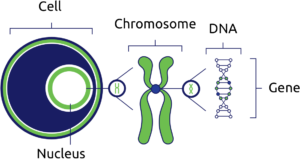 The modern studies have assured that we are living with a high risk of inheriting a family disease. And some of the congenital illnesses do not show any symptom until a certain age. It usually gets “too late” for patient till he finally discovers the disease. For instance, if someone has a history of the family cardiovascular problem, he/she might reduce the chance of its inheritance by developing healthy habits. In that case, DNA is extremely useful. People could utilize it to learn about the condition of their health and possibly find a solution to treat it.
The modern studies have assured that we are living with a high risk of inheriting a family disease. And some of the congenital illnesses do not show any symptom until a certain age. It usually gets “too late” for patient till he finally discovers the disease. For instance, if someone has a history of the family cardiovascular problem, he/she might reduce the chance of its inheritance by developing healthy habits. In that case, DNA is extremely useful. People could utilize it to learn about the condition of their health and possibly find a solution to treat it.
DNA profiling is an affordable and a reliable technique which is painless as well. It consumes unbelievably less time. There is no age limit associated with the DNA testing, and anyone at any age can opt for it.
Bottom Line
Since the DNA profiling performs multiple functions, you might want to discover what your DNA holds. So, book an appointment and get connected with the best DNA testing center in New York.
Call us at 718-701-0292 to schedule an appointment with the top DNA testing center in NYC.
If diabetes runs in the family, there is a very strong chance that you too might fall prey to it in the future. However, to stay one step ahead, it will not hurt to get your DNA tested to find out whether or not you can or will show symptoms of a hereditary disease. And for that you should always rely on the best DNA testing center NYC. It may sound frightening, but knowing a bitter truth is always right than a sweet lie. The following powerful reasons will tell why you should get your DNA tested as soon as you can.
Advanced medical research has confirmed that the risk of inheriting a genetic disease is very real and there are millions of people who really can’t do anything about it. But with this being said, alternatives and treatment associated with hereditary diseases have become a possibility as well. We just need to know whether or not we have been affected by a family health problem. For instance, if a family has a history of diabetes, the chances of inheriting it are more in next generation. You can get all the necessary information associated with family health through a DNA test via a DNA testing center in NYC.
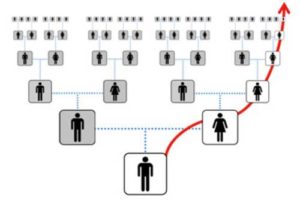 Congenital diseases can remain silent for the longest time – specifically metabolic and autoimmune problems. These diseases do not show any symptoms until you reach a certain age, which is indeed terrifying. It would be an unpleasant and a shattering experience to learn that you have an auto immune disease at the age of 35. For instance, celiac disease remains unnoticed until any severe health issues occur i.e. depression, anemia or worst – colon cancer. Unfortunately, it often gets too late until the person learns about his condition.
Congenital diseases can remain silent for the longest time – specifically metabolic and autoimmune problems. These diseases do not show any symptoms until you reach a certain age, which is indeed terrifying. It would be an unpleasant and a shattering experience to learn that you have an auto immune disease at the age of 35. For instance, celiac disease remains unnoticed until any severe health issues occur i.e. depression, anemia or worst – colon cancer. Unfortunately, it often gets too late until the person learns about his condition.
Knowing the truth about your health may be a bitter experience, but it can save you. You should know everything associated with your health to live a quality life. The DNA test can help make the right decision. For instance, if your family has a history of cardiovascular disease, you may be able to reduce your chances of developing severe symptoms by resorting to an active and healthy lifestyle early on. You may quit smoking, you may not drink that much and you may not eat unhealthy, processed foods.
You can maintain a quality life and healthy family. You just need to find out what your DNA indicates. If it highlights the risk of Crohn’s disease in your family and you have a mutation – how can you stay unaffected? You can limit the chances of it by avoiding stress and developing healthy eating habits. Moreover, after knowing your DNA results and living a healthy lifestyle you will be able to prevent your children to be affected by it.
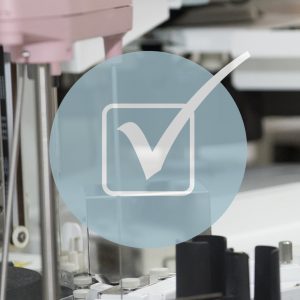 Getting a DNA test performed is surely a major investment to maintain a healthy life. Some diseases become strenuous to treat after reaching to a certain level, but with the help of DNA test you might be able to treat them at an early stage or in most cases, you can take precautions to remain unaffected.
Getting a DNA test performed is surely a major investment to maintain a healthy life. Some diseases become strenuous to treat after reaching to a certain level, but with the help of DNA test you might be able to treat them at an early stage or in most cases, you can take precautions to remain unaffected.
DNA tests for basic family diseases have become a necessity for the modern society. The technology exists. It depends on how much you want to take an advantage of it and to live a quality life. Take out some time, schedule an appointment and get your DNA tested with the most reliable DNA testing center in New York City.
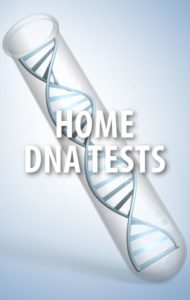 DNA testing is all the hype today thanks to the readily available home kits. With a home DNA kit, you can send a sample of your DNA to one of the many companies specializing in genetic testing and receive the results, which included interpretations of their potential diseases and other risks. As observed by a Stanford professor, interpretation of the results may differ based on the different medical studies used by different DNA testing companies, contributing to inconsistent results.
DNA testing is all the hype today thanks to the readily available home kits. With a home DNA kit, you can send a sample of your DNA to one of the many companies specializing in genetic testing and receive the results, which included interpretations of their potential diseases and other risks. As observed by a Stanford professor, interpretation of the results may differ based on the different medical studies used by different DNA testing companies, contributing to inconsistent results.
Other experts’ criticize the tests for not only for being inaccurate but also stirring the unjustified fear of potential health risks and diseases that a person may never develop. Although genetic research is the future as far as diagnosis and treatment of various diseases is concerned, more research and studies are required before a conclusive verdict can be reached. And since the DNA home kits market is entirely unregulated, it is like the Wild West right now. While some companies may act responsibly, others may undoubtedly be looking for a way to make money fast.
When doctors carry out tests to determine a genetic condition, they must make sure, during the personal consultation, that the patient thoroughly understands the effects of the test before revealing the results. In case of a home DNA kit, the duty of care, even with the promise of consultation over the phone, cannot be simply mimicked. Experts have also noted that the science of diagnosing disease causing genes is to this day in its infancy and it will take some time before we are finally able to uncover all the triggers for genetic diseases.
After all, there are over 20,000 genes in the human body, only a small number of which are analyzed in home-based DNA test. DNA testing experts, such as AlphaBiolabs, are willing to lay emphasis on the limitations of their tests because present scientific research is unable to provide a definitive answer regarding the development of diseases. Even if a DNA tests shows a person with a gene mutation, chances are it may be there their whole life without ever ‘switching on’. Today, home kits have no sure way of telling which way it will go.
Advocates of home DNA test kits claim that even if a single DIY tester successfully finds out they have a high risk of developing a genetic disease that is preventable, such as heart disease or diabetes, and molds his or her lifestyle to optimize their health, the outcome is positive. However, the critics also make some valid points. Not only do these home kits cost hundreds of dollars, but there is a doubt over their scientific reliability. Not to mention, there is a fear that a person may discover he/she has an incurable disease. Therefore, it is likely that people will dissuade from home DNA testing in the future.
DNA testing has been an invaluable tool, especially for criminal investigators and law enforcers over the past 25 years or so. As you may know, DNA makes up chromosomes, and genes are pieces of chromosomes that give individuals their unique traits. Height, eye color, and skin color, etc, are largely determined by genes. DNA testing is a powerful identification tool that has numerous practical applications, including forensic testing, parental testing, genetic genealogy (finding out one’s ancestry), and gene therapy (for detecting birth defects or genetic conditions).
Prove someone’s innocence or guilt in a criminal case.
If you are planning to get a DNA test, there are a number of options available, including physical and online labs. There are numerous walk-in DNA labs dispersed across the country, but using an online DNA testing provider is one of the most convenient and affordable ways to get a DNA test. For DNA paternity testing, online labs will generally send you a free DNA sample collection kit. Once you have collected your DNA samples, you need to return them along with your payment to the DNA lab. It’s as simple as that.
You may wonder if testing your DNA is worth the money and effort, but you can be sure that it is in fact a game changer if you want to really learn about yourself and use that information to improve your lifestyle. Your DNA can be the key to unlocking your past and future. When it comes to the past, genetic testing can tell you what parts of the world your ancestors came from and it also connects you with thousands of people who share mutual ancestors with you, from distant cousins to close relatives.
As far as the future is concerned, DNA testing can provide you insights into health risks that you may have. It can tell you if you are at greater risk for some type of diseases or are carrying certain hereditary conditions.
Over the past couple of years, DNA testing has become more affordable and convenient, especially thanks to home kits. With the advancing technology and development in genetic research, the possibilities are expanding. Algorithms will be able to find out people’s origins and guess their health concerns with greateraccuracy. Genetic testing is becoming more mainstream because it is now considerably easier to learn more about yourself and the trend only seems set to improve and continue.
Cancer is a progressive disease that can lead to the death if not detected early and treatment is not received in a timely manner. As the cancer cells grow, they tend to form a tumor that grows uncontrollably and affects healthy cells as well. Despite the gravity of cancer, it can be treated effectively if it is caught at an early stage.
Studies have consistently shown that some people are at risk of developing cancer if they have certain genes or genetic mutations present in their DNA. This is particularly so if a person has a personal or family history that suggests a higher risk of getting cancer. Because of this, DNA testing for cancer is now recommended to help prevent or catch cancer at an early stage which can lead to an improved chance of survival.
DNA testing for cancer is quick and simple. A small sample of body fluid or tissue is collected. The DNA sample usually is blood, but can also be saliva, cells from inside the cheek, skin cells or amniotic fluid (in case of an unborn child). The DNA sample is then sent to a DNA testing lab. The laboratory returns the test results to the doctor or genetic counselor who requested the test or directly to the patient. It usually takes several weeks or longer to get the DNA test results.
It is important for DNA test participant to understand that when a DNA test shows a positive result for a genetic mutation, it means that a person is genetically predisposed to suffering from that form of cancer. It does not mean that the person will get cancer; it only means that genetic markers for cancer are present.
Genetic counseling is recommended both before and after DNA testing to make sure that patients have accurate information about what a DNA cancer test means for their health and care.
DNA testing for cancer can be performed at most DNA testing centers. It is important to make sure that you choose a testing center that will provide security of any information and hygienic collection of DNA samples you provide.
If you are ready for DNA testing for cancer, please call us at 718-701-0292 to schedule an appointment with the top DNA testing lab in NYC.
A legally admissible DNA paternity test is required to establish paternity, receive child support or get custody of a child in New York. For paternity testing, photo identification of all tested adults is required. The samples are shipped to a DNA testing center and collected by impartial third parties and strict chain of custody is maintained. The DNA samples will be analyzed and compared in a DNA testing lab.
Useful for all legal purposes including child custody and support. All parties must provide verifiable proof of identity. DNA paternity test performed by paternity testing lab authorized professionals.
Notarized legal documents are issued according to AABB Parentage Testing Committee accreditation standards to include full disclosure of DNA paternity test results.
Not useful for legal purposes because it is not possible to verify who has been tested. Report clearly marked “identification not verified” and it will not be accepted as evidence of paternity in family court.
A DNA test is easy and painless. It can even be performed on a newborn. The child (or children) and father will submit a DNA sample. A DNA tech will collect a small DNA sample by swabbing the inside of each person’s cheek. After collection, the samples are submitted to a DNA testing lab and/or DNA testing doctor.
DNA Testing can be performed at DNA testing centers. It is important to make sure that you choose a testing center that will provide confidentiality of information and of the DNA samples you provide.
When you are ready for DNA Paternity Testing, please call us to schedule an appointment with the top DNA testing center in NYC.
In New York DNA paternity testing must follow a set of regulations mandated by the New York State Department of Health. If you are in need of a paternity test, it’s imperative that you use a New York DNA paternity testing laboratory that is fully accredited, has an excellent track record, and follows the NYSDOH regulations exactly. This way, you can be sure that you are getting reliable results that are admissible in a court of law for proving or disproving paternity. AABB DNA Testing is that facility.
The NYSDOH mandates that all DNA paternity tests must be formally requested by an agent, which can be a doctor, lawyer or officer of the court. The DNA sample must be collected by a certified technician who has no interest in the outcome of the test, and the facility that performs the test has to be fully accredited by the NYSDOH. Furthermore, every step in the process of collecting and DNA paternity testing has to be properly documented to establish a chain of custody.
Results for a DNA paternity test will usually be available within less than a week. And AABB DNA Testing can provide DNA paternity tests even if the father in question is incarcerated or deceased. Samples are collected by trained professionals, and all of our tests are performed at our fully accredited laboratory facilities. Our results are provided on a notarized document that is admissible in all paternity-related court proceedings. We provide results that have an accuracy of more that 99.9%, which allows you to rest assured that you are getting the right answer to your question of who the father is.
If paternity is in dispute, or if you simply don’t know who the father of a child is, be sure you go with the premier facility for New York DNA paternity testing: AABB DNA Testing. Contact us today to find out how we can help you.
Paternity DNA testing is the single most accurate method currently available. Everyone, with the exception of identical twins, has a completely unique DNA profile, much like a fingerprint. We inherit half of our DNA from our father and half from our mother. DNA paternity testing finds the 50% match between the DNA profiles of the child and the parent. This method is considered to be 100% accurate. Paternity DNA testing results can be used in court to prove fatherhood, and can be used as evidence for parental rights, child support, social benefits, and other situations in which proof of parental relationship is necessary.
Once DNA specimens are obtained by the laboratory, results are generally available in as little as three to five days. Expedited testing services can provide results within 24 hours in certain situations. Paternity DNA tests can be conducted before the child is even born so that paternity can be determined during pregnancy. An obstetrician/gynecologist will be involved in the collection of the child’s DNA sample. This procedure is performed during a specific timeframe in the pregnancy in order to ensure there is minimal risk to the developing fetus or the mother. Results obtained from prenatal DNA testing are as accurate as those from a standard paternity DNA test conducted after the child is born.
An individual’s DNA does not ever change during their lifetime, and the type of DNA sample used in the paternity test will not affect the accuracy of the results in any way. Therefore buccal swab samples are just as accurate as blood samples. Buccal swabs collect cell tissue from the inside of a person’s cheek. This method is less invasive than drawing blood, and it’s faster and painless. Non-standard samples such as cigarette butts, hairs (including roots), and personal items like toothbrushes are also potential sources of DNA. These can be useful for collecting DNA from individuals who are not cooperative with the paternity testing process.
All steps in the Chain of Custody of DNA samples must be properly identified and documented in order to be legally admissible in court. In a legal paternity DNA test, collection and handling of the samples must be properly done and documented. And anyone involved with the testing process, from the person collecting the specimen to the laboratory analyst performing the paternity test must be an objective third party who has no interest in the test results.
Paternity DNA tests that are properly conducted will always show a 0% probability of paternity if the man who is tested is not the biological father. They will also show a greater than 99.9% probability of paternity if the man is the father. These results are considered decisive by the court and definitively prove or disprove paternity.
If you require paternity DNA testing please call the top DNA testing lab in New York City, AABB DNA Testing.